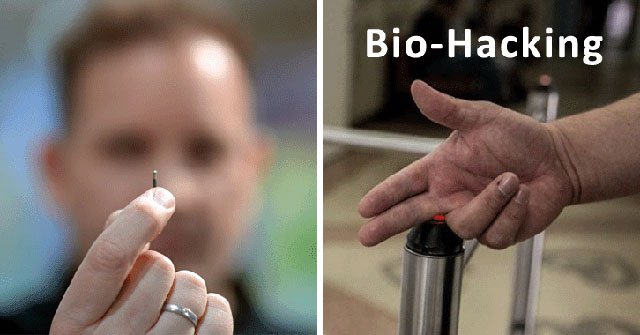The doctor implanted 6 microchips into the skin to unlock the door and secure the data
Biohack is becoming increasingly popular, in which a doctor implants 6 microchips into the skin to perform everyday tasks.
Earlier this month, several employees at Three Square Market (32M) implanted microchip into their hands to log in to the company computer, open the door, pay for food and drinks simply by waving hand.
But biohacking has become increasingly popular in Russia.
A Siberian doctor has just implanted not only one but at least six microchips into his skin, turning the body into a multifunctional device to perform many tasks by simply waving.
Alexander Volchek, an obstetrician and gynecologist at a hospital in the Novosibirsk region in northern Russia, first implanted microchip in 2014. Since then, he has gained more and more and now has a total of 6 microphones. subcutaneous vessels.

Biological hacking is becoming more and more popular
But Volchek still does not want to stop there, he hopes to implant a system of cryptography and measure the amount of sugar in his body in the near future.
These chips help him perform some routine activities such as opening doors and offices, paying bills that just need to hand in front of the code scanner. Everything works like a miracle.
- Two chips to enter the office
- A chip to move
- Two memory cards store information
- A card at the Siberian ski resort
To implant a circuit, a syringe with a thick injection is required. The microchip is 2 x 12mm and the maximum size is no more than 1.5 x 8mm, with information storage capacity ranging from 800 bytes to 1KB.
One of the chips acts as a business card for Volchek, while another chip stores passwords for him to unlock the computer.
'My dream as a free cryptographer is to have an identity tool for encrypting digital signatures, and of course apply to medicine,' Volchek said. . 'I also want to chip the next line because it will solve many problems that are still being studied'.
However, microchips are not permanently implanted into the skin. They can easily take skin whenever you want.
Biotechnology is increasingly popular but also causes concerns about user safety and privacy. Hackers can use this technology for the wrong purpose. The more technology is developed, the more hackers and cyber criminals have to take advantage.
You should read it
- ★ Microchip MPLAB PICkit 4, a new tool that supports debugging 5 times faster and low cost programming
- ★ This microchip is capable of detecting cocaine, surprisingly cheap at only 0.1 USD
- ★ Fever with a implant device creates a false scene to catch breast cancer cells
- ★ The United States announced the implant device to overcome sleep apnea
- ★ How to hack name in Among Us, naming tips Among Us